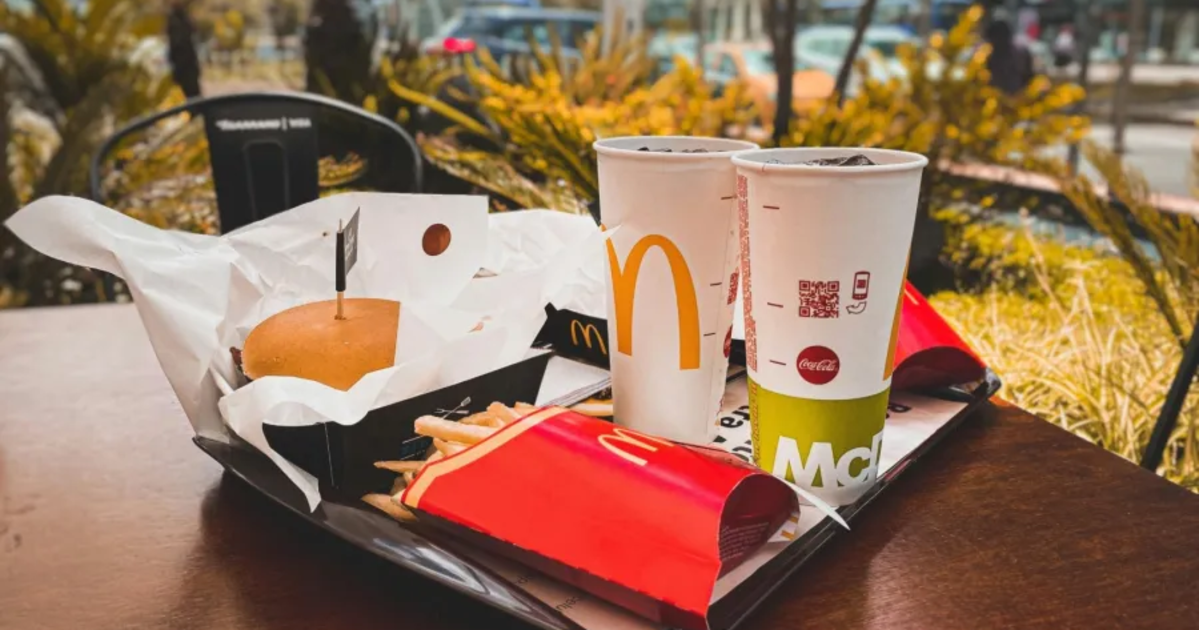Taipei, July 2025 – In a major step toward environmental sustainability, McDonald’s Taiwan has announced a significant upgrade to its packaging strategy, transitioning several popular items from traditional paper boxes to more eco-friendly wrapping paper and paper bags. The initiative officially took effect this July, marking a milestone in the company’s long-standing commitment to reducing waste and promoting recyclable materials.
♻ Major Packaging Shift: Goodbye Boxes, Hello Paper
Customers will now notice that items such as the Big Mac, Filet-O-Fish, 6-piece and 10-piece Chicken McNuggets, and Apple Pie are no longer served in paper cartons but instead wrapped in specially designed paper packaging. More importantly, McDonald’s has gone a step further by removing the inner plastic coating typically found in such wrappers — a move that significantly cuts down on plastic use across its operations.
This change is the result of three years of research, development, and in-restaurant testing. During the trial phase, feedback from customers was overwhelmingly positive. Many diners appreciated the added convenience, reduced packaging waste, and the environmentally friendly approach.
🌱 Real Environmental Impact
McDonald’s Taiwan estimates that by making this switch:
-
Approximately 10,000 trees can be saved each year due to reduced pulp usage.
-
86 tons of plastic waste can be eliminated annually by removing plastic film from packaging.
According to the company, these “small but meaningful changes” add up to significant environmental benefits when adopted on a large scale.
🥪 Tailored Design for Iconic Menu Items
The transition wasn’t as simple as changing paper types. Each item required tailored packaging solutions:
-
The Filet-O-Fish, which features steamed bread, needed wrapping similar to baking paper to balance oil resistance and breathability — ensuring the bread stays fresh and doesn’t stick.
-
The Big Mac, with its three layers of bun and signature fillings, posed a greater challenge. Engineers studied packaging solutions used in France and South Korea, and after numerous prototypes and in-kitchen trials, they finalized a design that maintains both structural integrity and user convenience.
🧪 No Harmful Chemicals, Safe for Consumers
McDonald’s Taiwan has prioritized food safety in its sustainability efforts. As early as 2008, the company eliminated oil-resistant chemicals like PFOA and PFOS from its packaging. By 2024, it had fully switched to fluoride-free oil-resistant paper. Now, starting this July, all wrapping papers will be produced without plastic coatings, using natural starch or silicon-based materials instead. The result: improved breathability, consistent oil resistance, and a reduced environmental footprint.
☕ Reusable Cups in Over 200 Locations
Beyond food packaging, over 200 McDonald’s branches in Taiwan now use reusable in-store cups to cut back on disposable beverage containers. These cups are made from food-grade polypropylene (PP) that can withstand temperatures between -5°C and 110°C. Free from bisphenol A and harmful plasticizers, the cups meet national safety standards and undergo rigorous cleaning and sterilization after each use.
Used cups are carefully inspected, washed with food-grade detergent, and sanitized in high-temperature washers — ensuring both hygiene and sustainability.
🌍 Commitment to a Greener Future
For over a decade, McDonald’s Taiwan has been rethinking packaging through the lens of responsible sourcing, material innovation, waste reduction, and recyclability. The company continues to pursue a balance between eco-conscious practices and enhancing the customer experience.
By integrating environmental protection into everyday operations, McDonald’s aims to make sustainability more accessible and intuitive for both its customers and employees — proving that even the smallest changes can lead to a significant impact.



